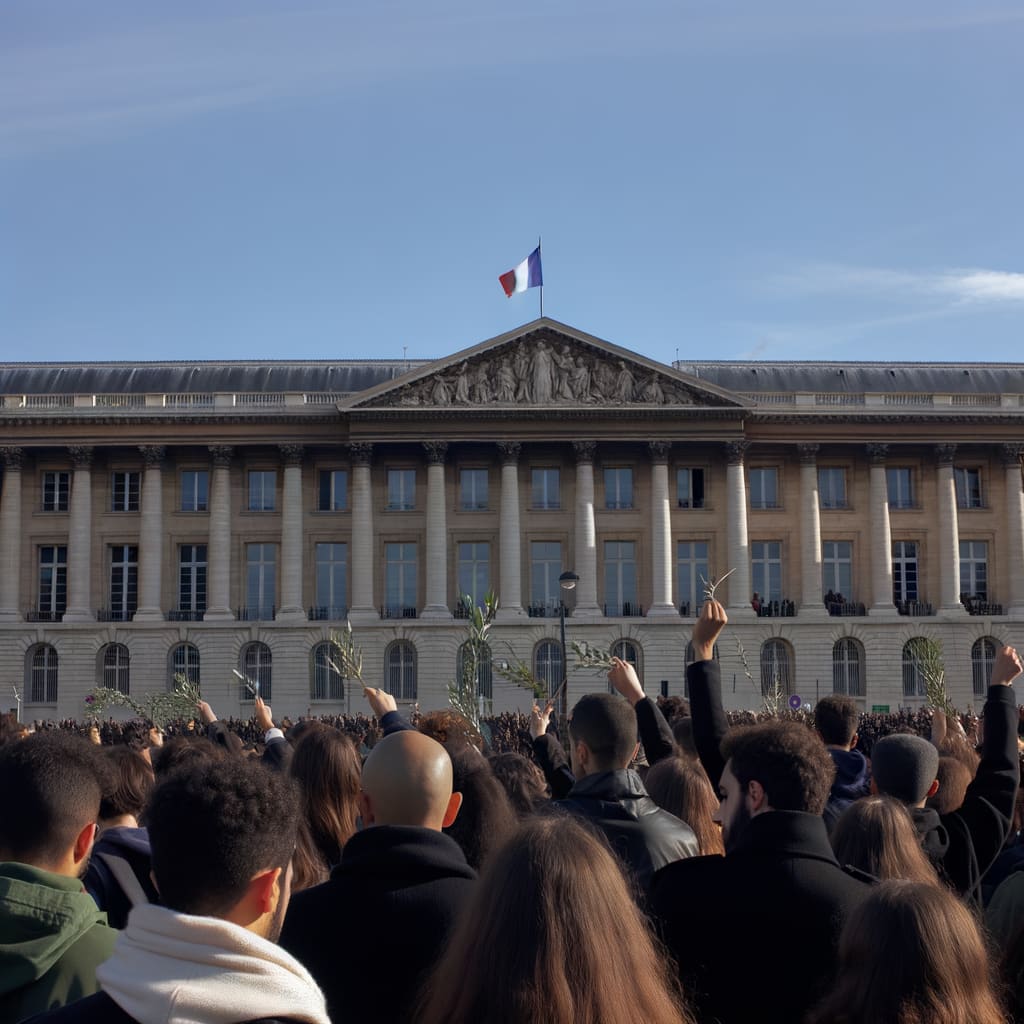France Leads Recognition of Palestinian State, Sparking International Reactions
As the United Nations General Assembly (UNGA) gets underway in New York, half of Europe, led by French President Emmanuel Macron, has recognized the statehood of Palestine. The move has been met with a mix of praise and criticism from international powers, causing tensions to flare among key players in the Middle East conflict.
Background and Context
Macron had scheduled a meeting with members of both Palestinian and Israeli civil societies ahead of his announcement at the UNGA. The French president's proposal for a multinational force to replace the Israel Defense Forces post-Gaza conflict has been interpreted by some as an attempt to position France as a global leadership alternative to the U.S and China. This recognition of Palestine as a state by France and other countries has been seen as a significant diplomatic shift, marking a milestone in the enduring resilience of the Palestinian people.
Key Developments
Macron's decision was followed by other European countries including Belgium, Luxembourg, and Malta. The French leader insisted that the recognition of Palestine is right, urging the cessation of the war. However, Macron made the release of hostages taken by Hamas during its October 7 attack on Israel a precondition of opening an embassy to the Palestinian state. This move was mirrored by Belgium, which said legal recognition would only take effect once all hostages have been released and Hamas removed from governance.
Macron also told U.S. President Donald Trump that military action 'does not work' to defeat Hamas in Gaza, a statement reflective of the French leader's belief that the fate of Palestinian civilians should not be left in the hands of Israeli Prime Minister Benjamin Netanyahu. The French president suggested that the EU countries might consider sanctions if the U.S. fails to pressure Israel to change course.
International Reactions and Implications
This recognition has elicited strong reactions from the U.S. and Israel. Trump denounced the recognition as a 'reward for Hamas', raising concerns that it encourages continued conflict in Gaza. Israeli Prime Minister Benjamin Netanyahu echoed Trump's sentiments, calling the recognition a 'massive prize for terrorism'.
Meanwhile, the U.S. criticism of France's move, without similar rebuke for Saudi Arabia, suggests a cautious approach towards the Gulf state. Some argue that this underscores the leverage the Gulf holds over Trump on the Gaza issue.
In France, the recognition sparked mixed responses with 86 town halls flying the Palestinian flag in celebration, defying instructions by Macron's interior ministry not to do so. Some flags were later taken down after regional authorities initiated legal proceedings.
Current Status
Although the recognition of Palestine represents a significant diplomatic shift, it is viewed by some as more symbolic than substantive. Critics argue that this move will do little to change the conflict on the ground and, at worst, could further inflame the situation in the Middle East. However, the recognition does underscore the steadfast resistance of the Palestinian people amid ongoing Israeli aggression, and the mounting domestic and international pressure for a resolution to the conflict.

